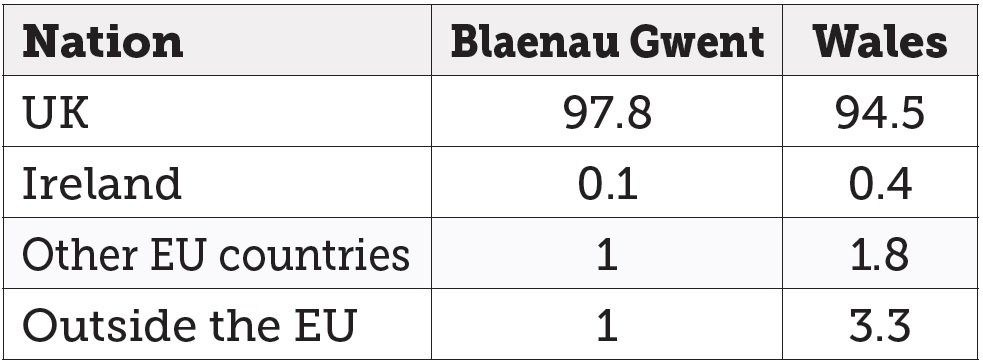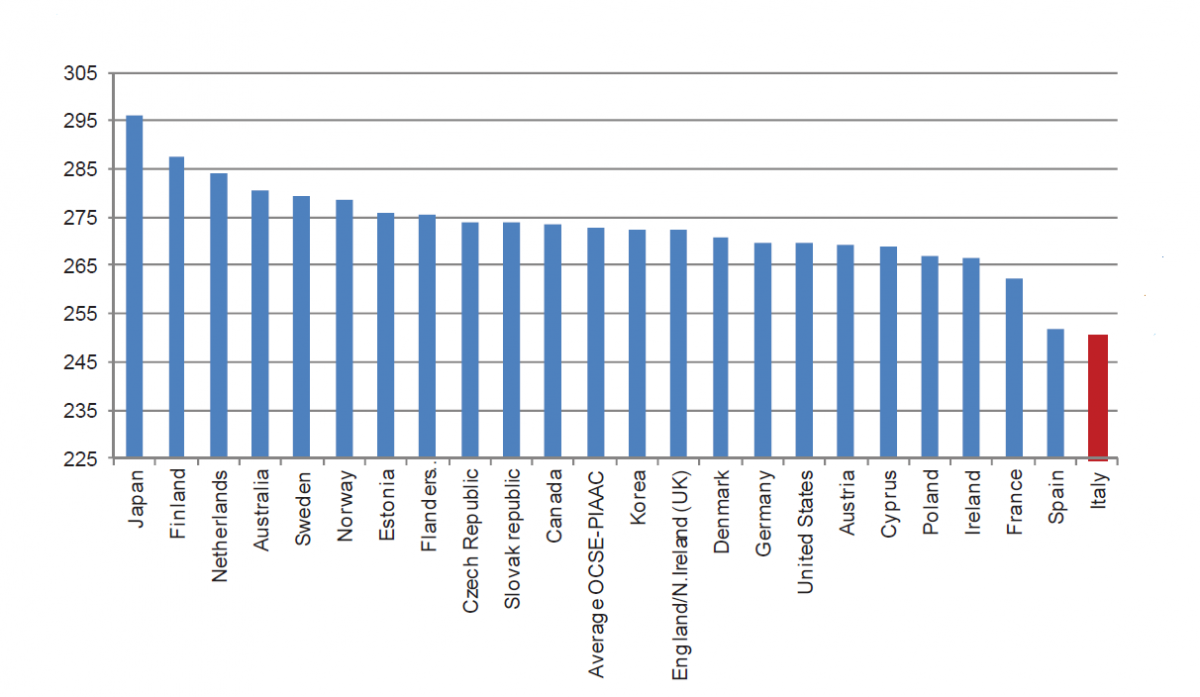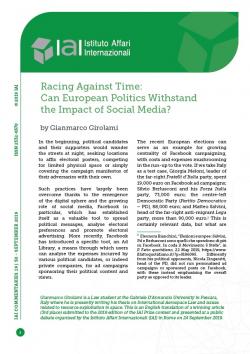Racing against Time: Can European Politics Withstand the Impact of Social Media?
Racing Against Time: Can European Politics Withstand the Impact of Social Media?
Gianmarco Girolami*
In the beginning, political candidates and their supporters would wander the streets at night, seeking locations to affix electoral posters, competing for limited physical space or simply covering the campaign manifestos of their adversaries with their own.
Such practices have largely been overcome thanks to the emergence of the digital sphere and the growing role of social media, Facebook in particular, which has established itself as a valuable tool to spread political messages, analyse electoral preferences and promote electoral advertising. More recently, Facebook has introduced a specific tool, an Ad Library, a means through which users can analyse the expenses incurred by various political candidates, or indeed private companies, for ad campaigns sponsoring their political content and views.
The recent European elections can serve as an example for growing centrality of Facebook campaigning, with costs and expenses mushrooming in the run-up to the vote. If we take Italy as a test case, Giorgia Meloni, leader of the far-right Fratelli d’Italia party, spent 19,000 euro on Facebook ad campaigns; Silvio Berlusconi and his Forza Italia party, 73,000 euro; the centre-left Partito Democratico (PD), 88,000 euro; and Matteo Salvini, head of the far-right anti-migrant Lega party, more than 90,000 euro.[1] This is certainly relevant data, but what are the actual risks associated with social media and their impact on European politics?
Fifty kilometres north of Cardiff, in the Welsh county of Blaenau Gwent, the town of Ebbw Vale can provide some examples.[2] With a population of 33,000 people, the town grew to prominence as a result of mineral exploration in the late 18th century. Coal mining represented an important source of income, and by the 1940s, Ebbw Vale was home to Europe’s largest steelworks company. Workers employed in the sector grew to 14,500 by the 1960s and yet, by the late 1990s, employment opportunities collapsed with iron-workers decreasing to only 450 employees. As a result, the town gradually lost its purpose, becoming something akin to an open-air post-industrial museum, with little job opportunities and declining living standards.
Then came the UK’s entry into the European Union. Since then, Ebbw Vale has benefitted from significant investments, including the establishment of a new college costing 33 million pounds, a sports centre valued at 350 million pounds and renovated street and road infrastructure worth another 77 million pounds. What do these investments have in common?
In all of these instances, and many more, including the construction of new rail links and a train station, a significant portion of the funding was provided by the European Union. Such investments, particularly in a small town as Ebbw Vale, would be expected to receive enthusiastic backing by the population, in turn helping to boost employment and living conditions in the territory.
Yet, Ebbw Vale has today become famous due to the results of the UK’s Brexit referendum, with citizens voting overwhelmingly to leave the EU. Indeed, while 37,9 per cent voted for remain, an astonishing 62,1 per cent voted Leave, the highest percentage in Wales.
Carole Cadwalladr, a journalist for the UK daily The Observer, followed the referendum and, in the aftermath of the vote, travelled to Blaenau Gwent to interview citizens. The vast majority of these pointed to immigration and an ill-defined need to “take back control” as the underlining reasons for the Leave vote. Similar feelings had also been widely and insistently shared on social media, and Facebook in particular, in the run up to the vote on 23 June 2016.
Upon closer scrutiny, however, in Ebbw Vale, as in other similar contexts across Europe, reality does not match these popular sentiments. Indeed, the real migratory influence in Ebbw Vale is confined to a single Polish woman, as she herself noted to Cadwalladr during an interview. Such data is supported by the last UK census of 2011, which measured a meagre 2.2 per cent of immigrants in Blaenau Gwent,[3] a figure that comprises both European and non-European citizens (see Table 1).
Table 1 | Blaenau Gwent (Wales) population by country of birth (%), 2011

Source: iLiveHere UK, Socio-economic Statistics for Ebbw Vale, Blaenau Gwent, https://www.ilivehere.co.uk/?p=68578.
In light of the surprising case of Ebbw Vale, and driven by an urge to understand the reasons for this vote, I decided to focus on education and specifically the levels of functional illiteracy present in this territory. High levels of functional illiteracy refers to an inability to effectively use basic comprehension skills (reading, writing, calculating, etc.), therefore weakening independent critical thinking and analytic qualities.
This focus immediately resulted in a disturbing discovery. Functional illiteracy rates in Wales stood at 25 per cent in 2011 – and were significantly higher to those of England, which registered a 16 per cent rate.[4] Could such data help explain the prominence of Leave vote in Ebbw Vale?
The lack of basic comprehension and analytical skills means that people are more prone to embracing sensationalism or “shock” content, which tends to be easily consumable, deprived of sources, simply written and often accompanied by a decontextualised image that itself reinforces the psychological objectives of the post and its underlining content.
Possessing interpretative tools but not knowing how to effectively use them is not unique to Wales and represents a growing challenge in a number of European contexts. In Italy, for instance, functional illiteracy rates stand at 27.7 per cent, in Spain at 27.5 per cent and in Germany at 17.5 per cent[5] (see Figure 1). Italy’s high ranking should be a source of worry, given that such data seems to indicate a population that is easily influenced via sensationalism and social media.
Figure 1 | Functional literacy score (PIAAC Survey 2011-2012)

Source: Gabriella Di Francesco (ed.), “Le competenze per vivere e lavorare oggi. Principali evidenze dall’indagine PIAAC”, in ISFOL Research Papers, No. 9 (October 2013), p. 27, http://bw5.cineca.it/bw5ne2/opac.aspx?WEB=INAP&IDS=19566.
To respond to these challenges, it is worth reflecting on the role of institutions, and if the intervention of such institutions can succeed in containing the phenomenon of fake news and its malicious intents. Would such an intervention helped change the results of the Brexit referendum in the UK, for instance?
With these thoughts in mind, I jumped at the opportunity to attend a seminar on personal data protection that was held at my university in May 2019 with the participation of Antonello Soro, the President of the Italian Data Protection Authority. During the meeting, I asked him to outline his thoughts on the tools that European legislators can implement to protect personal data from being used for electoral manipulation. In response, he noted that rules and regulations are needed to control online content, but that it is unthinkable to entrust the management of information to those same companies and platforms that convey and spread this information online. While some progress has been made at the national and European level, the development of appropriate regulations is a gradual process in which users, regulators and the companies themselves will need to share responsibilities.
Days later, on 11 May 2019, news spread that Facebook has closed down 23 profiles and pages accused of spreading fake news in Italy.[6] Thinking back to the answer provided by President Soro, is it possible to expect individuals and users to self-regulate content online and that information management, such as the deletion of content, is left to a private company (in this case Facebook), whose very business model is based on the spread of online information?
This dichotomy between the sharing of news which may be confusing and highly malleable and the application of the principles of free speech, thought and expression – as defined by Article 21 of the Italian Constitution – raises doubts about the establishment of a third party, a qualified guarantor of the truthfulness of news. We remain, again, in a limbo, caught in a catch-22 between censorship and freedom of expression.
Yet, in the run-up to the recent European elections, the EU has begun to act, establishing a Rapid Alert System (RAS) as one part of its Action Plan against Disinformation endorsed by the European Council in December 2018. This aims to strengthen coordination against online disinformation and fake news though the rapid exchange of data, with the help of government officials and data protection agencies.[7]
It is too early to tell if these and other policies will succeed in limiting the malicious influences of the digital sphere. The case of Ebbw Vale remains important and should not be forgotten. Here, it is no doubt necessary to reiterate how education represents a fundamental ingredient to improve social awareness and understanding of these threats.
Overall, however, one cannot lose hope, and I still believe this historical period often associated with a crisis of democracy simply represents an interregnum, a functional and corroborating “pit stop”, that will soon be overcome and result in a further enrichment of European societies and citizens.
Today, as some question the future of Europe and European democracy, a new generation of students from all over the continent are preparing to depart on a new Erasmus project or join the European Voluntary Service. Perhaps something is already in motion, maybe what is needed is new safety gear and new energy, for us all to go running again, joining forces across Europe to reach new objectives together.
* Gianmarco Girolami is a Law student at the Gabriele D'Annunzio University in Pescara, Italy where he is presently writing his thesis on International Aerospace Law and issues related to resource exploitation in space. This is an English translation of a winning article (3rd place) submitted to the 2019 edition of the IAI Prize contest and presented at a public debate organised by the Istituto Affari Internazionali (IAI) in Rome on 24 September 2019.
[1] Eleonora Bianchini, “Elezioni europee: Salvini, Pd e Berlusconi sono quelli che spendono di più su Facebook. In coda il Movimento 5 Stelle”, in Il Fatto quotidiano, 22 May 2019, https://www.ilfattoquotidiano.it/?p=5196095. Differently from his political opponents, Nicola Zingaretti, head of the PD, did not run personalised ad campaigns or sponsored posts on Facebook, with these instead emphasising the overall party as opposed to its leader.
[2] Carole Cadwalladr, “Facebook’s Role in Brexit– And the Threat to Democracy”, in TED Talks, April 2019, https://www.ted.com/talks/carole_cadwalladr_facebook_s_role_in_brexit_and_the_threat_to_democracy.
[3] UK Office for National Statistics, International Migrants in England and Wales: 2011, 11 December 2012, https://www.ons.gov.uk/peoplepopulationandcommunity/populationandmigration/internationalmigration/articles/internationalmigrantsinenglandandwales/2012-12-11#local-geography-of-non-uk-born-and-non-uk-nationals.
[4] Equality and Human Rights Commission, How Fair is Wales?, Equality, Human Rights and Good Relations, March 2011, p. 44, https://www.equalityhumanrights.com/en/node/502.
[5] See PIIAC data in OECD website: Survey of Adult Skills (PIAAC 2015): Full Selection of Indicators, http://www.oecd.org/skills/piaac.
[6] Avaaz, Facebook: Avaaz Investigation Results in Takedown of Italian Disinformation Networks with Almost 2.5 Million Followers Ahead of EU Elections, 11 May 2019, https://secure.avaaz.org/act/media.php?press_id=970.
[7] European External Action Service, Factsheet: Rapid Alert System, 15 March 2019, https://europa.eu/!XD46hF.

Published with the support of the Italian Ministry of Foreign Affairs and International Cooperation pursuant to art. 23-bis of Presidential Decree 18/1967. The views expressed in this report are solely those of the author and do not necessarily reflect the views of the Italian Ministry of Foreign Affairs and International Cooperation.
-
Dati bibliografici
Roma, IAI, settembre 2019, 5 p. -
In:
-
Numero
19|50
Tema
Tag
Contenuti collegati
-
Ricerca02/04/2022
Premio IAI: Giovani talenti per l’Italia, l’Europa e il mondo
leggi tutto -
Evento05/09/2019
Giovani talenti per l'Italia, l'Europa e il mondo - ed. 2019
leggi tutto




